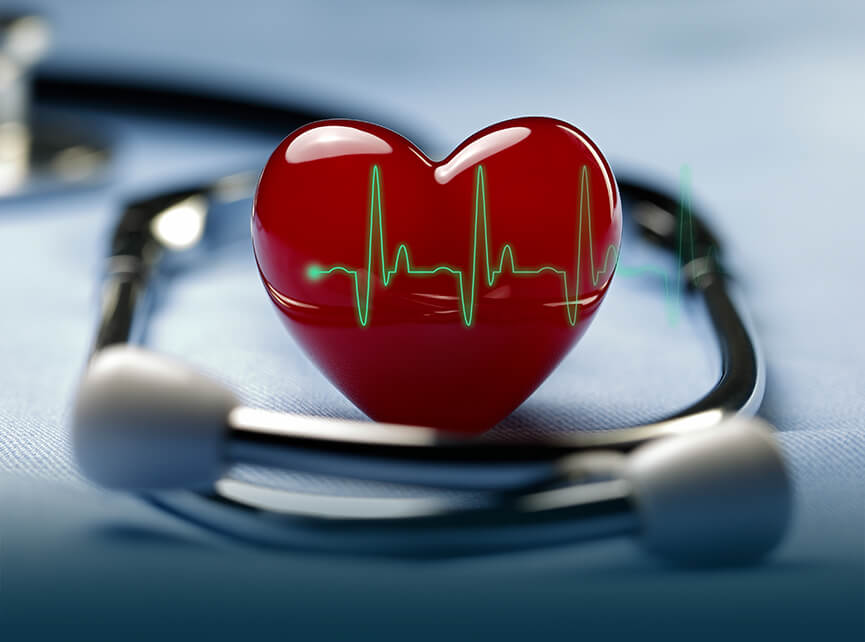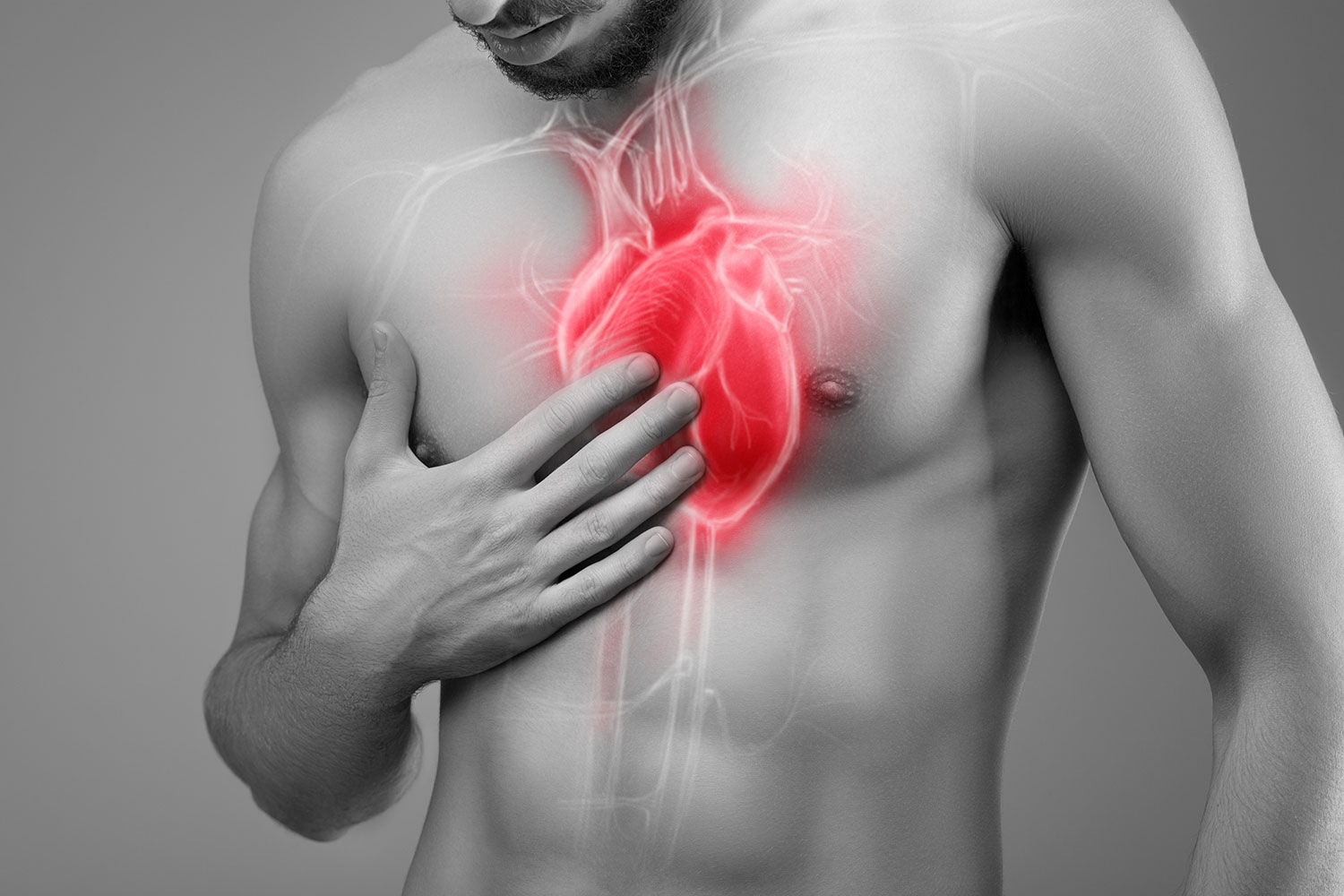What to expect from your first Cardiologist near me appointment
What to expect from your first Cardiologist near me appointment
Blog Article
Recognizing the Relevance of Cardiology in Modern Healthcare Solutions
Cardiology plays an important duty in modern medical care, specifically as cardiovascular disease remains to be the leading reason for mortality worldwide. Advances in diagnostics and treatment have actually transformed client treatment, making it possible for earlier interventions and improved outcomes. The change in the direction of precautionary cardiology encourages individuals to manage their health and wellness proactively. As modern technology remains to progress, the integration of ingenious remedies might even more redefine cardiology's influence on public wellness, triggering a closer evaluation of emerging patterns and their ramifications.
The Frequency of Heart Problem and Its Influence On Public Wellness
Although heart illness stays the leading cause of fatality internationally, its effect expands much past specific people to impact public health and wellness systems and economies. The high prevalence of heart disease places a substantial pressure on medical care sources, demanding boosted funding for treatment, prevention, and recovery programs. Public wellness initiatives should deal with threat variables such as weight problems, cigarette smoking, and sedentary way of livings, which contribute substantially to the increasing incidence of heart conditions.Moreover, the financial burden connected with heart problem is tremendous, incorporating not only straight clinical costs however likewise indirect costs connected to shed performance and early death. Areas deal with difficulties in handling these expenses, typically bring about differences in healthcare access and results. As the populace ages and lifestyle-related threats continue to rise, the necessity for effective cardiology interventions ends up being extremely important. Resolving heart disease is not only an issue of private health and wellness yet also a vital public health and wellness priority.
Breakthroughs in Heart Diagnostics and Imaging Techniques
Current improvements in cardiac diagnostics and imaging methods have revolutionized the area of cardiology, improving the capability to keep track of and detect cardiovascular disease. Techniques such as cardiac MRI, CT angiography, and echocardiography have come to be progressively advanced, giving comprehensive pictures of cardiac frameworks and features. These modalities permit the very early identification of problems like coronary artery illness, cardiac arrest, and valvular disorders.Moreover, innovations in non-invasive diagnostics, such as wearable innovation and remote surveillance gadgets, have actually equipped people and healthcare service providers. These tools promote real-time tracking of heart rhythms and other crucial indications, bring about prompt interventions. Additionally, expert system is being integrated right into imaging evaluation, boosting accuracy and performance in medical diagnosis.
Advancements in Treatment Alternatives for Heart Conditions
Current advancements in cardiology have resulted in substantial developments in treatment options for heart conditions. These include sophisticated medical strategies that improve step-by-step end results and arising drugs that provide new methods for therapy. As the area advances, these innovations play a vital role in boosting client treatment and outcomes.
Advanced Surgical Techniques
Advancements in medical methods have actually changed the landscape of cardiology, offering new wish for individuals with heart conditions. Minimally invasive procedures, such as catheter-based treatments, have considerably minimized recuperation times and healthcare facility keeps. Techniques like robotic-assisted surgical treatment enhance accuracy, permitting doctors to navigate intricate anatomical frameworks with greater precision. Innovations in imaging innovation assist in real-time visualization during treatments, boosting end results. Transcatheter aortic shutoff replacement (TAVR) exhibits an advancement in treating aortic constriction, allowing valve replacement without open-heart surgery. Furthermore, hybrid methods that combine surgical and catheter-based approaches give customized options for different cardiac concerns. These sophisticated medical strategies not just improve person security yet additionally expand therapy options, underscoring the crucial duty of innovation in modern-day cardiology techniques.
Emerging Therapies and drugs
As the landscape of cardiology remains to progress, emerging treatments and medicines play a critical function in enhancing treatment choices for heart conditions. Advancements such as novel anticoagulants and advanced lipid-lowering agents have transformed the administration of cardio diseases, greatly reducing patient morbidity and mortality. Furthermore, the development of genetics treatments and regenerative medication uses encouraging methods for dealing with conditions formerly considered irreversible. Medical trials are constantly revealing the effectiveness of these therapies, pushing the borders of traditional treatments. Additionally, the assimilation of digital health modern technologies promotes individualized medication, enabling for customized therapy plans based on genetic and lifestyle elements. Jointly, these developments underscore the vibrant nature of cardiology, improving person outcomes and redefining criteria of treatment in contemporary health care.
The Duty of Preventive Cardiology in Person Treatment
Preventative cardiology plays a necessary function in individual care by concentrating on the recognition of threat variables that add to heart disease. With way of living alteration strategies and very early discovery methods, doctor can efficiently lower the incidence of cardio events - Cardiologist near me. This positive strategy not just boosts person outcomes however additionally promotes long-term health and wellness
Risk Variable Recognition
While cardio conditions remain a leading root cause of morbidity and mortality worldwide, reliable risk aspect recognition acts as a foundation of preventative cardiology. Identifying threat aspects such as hypertension, family members, diabetic issues, and hyperlipidemia history is essential for early treatment. Medical care specialists use various screening approaches to review these variables, enabling tailored preventative actions. Furthermore, comprehending a patient's way of life selections, such as cigarette smoking and physical inactivity, even more educates risk assessments. This detailed analysis makes it possible for clinicians to establish personalized care plans focused on mitigating risks. By focusing on danger aspect recognition, health care systems can boost patient end results and minimize the total concern of cardiovascular conditions, eventually adding to enhanced public health approaches and resource allowance.
Way Of Living Adjustment Strategies
A multitude of research studies highlights the vital role of way of life modification methods in reducing cardiovascular disease threat. These strategies incorporate nutritional modifications, raised exercise, cigarette smoking cessation, and weight administration. By taking on a heart-healthy diet rich in fruits, vegetables, entire grains, and lean healthy proteins, people can lower cholesterol degrees and blood pressure. Regular exercise enhances the heart and improves overall cardiovascular health and wellness. In addition, giving up smoking cigarettes substantially reduces the risk of cardiovascular disease and boosts recovery rates for those with status quo. Weight management additionally adds to cardio health by reducing various other threat factors such as diabetes mellitus and high blood pressure. Applying these lifestyle alters not only advertises private wellness yet also works as a keystone of preventive cardiology in patient treatment.
Very Early Detection Techniques
Way of living modifications significantly add to reducing cardiovascular disease threats, but they are most reliable when matched with early detection methods. Precautionary cardiology stresses the importance of recognizing possible heart problems before they escalate into serious problems. Techniques such as high blood pressure monitoring, cholesterol testing, and advanced imaging modern technologies like echocardiograms play important duties in reviewing cardiovascular health. Biomarkers and hereditary screening also improve the accuracy of early discovery, permitting tailored preventative strategies. Routine heart danger examinations empower medical care providers to interfere proactively, possibly avoiding heart assaults and strokes (Cardiology Jupiter). By integrating these early discovery methods right into routine treatment, people can gain from timely way of life treatments and targeted treatments, ultimately boosting results and enhancing high quality of life
Integrating Technology Into Cardiology Practices
As innovations in technology continue to improve numerous areas, the integration of ingenious devices and systems right into cardiology methods has actually become vital for improving patient care and results. Telemedicine platforms allow cardiologists to monitor people from another location, boosting accessibility to care while lowering the worry on healthcare facilities. Wearable tools, such as smartwatches, enable continuous heart rate tracking, signaling both doctors and patients to potential concerns in real-time. Additionally, synthetic intelligence (AI) is being utilized to assess substantial quantities of cardiac information, assisting in early medical diagnosis and customized treatment plans. Advanced imaging strategies, consisting of 3D echocardiography, enhance visualization of heart frameworks, resulting in more accurate treatments. Electronic health and wellness documents (EHRs) improve patient details administration, guaranteeing that cardiologists have instant access to critical information. Together, these technological developments are transforming cardiology, promoting proactive management and enhanced wellness results for people with cardiovascular problems.
The Relevance of Individual Education And Learning and Engagement
Client education and interaction play a critical function in the administration of cardio wellness. By equipping people with expertise regarding their conditions, treatment options, and way of life changes, medical care providers equip individuals to take an energetic role in their care. This aggressive technique can lead to improved adherence to prescribed drugs, dietary adjustments, and exercise programs, ultimately minimizing the risk of complications.Engagement additionally promotes a solid patient-provider relationship, urging open communication and trust fund. When clients feel notified find more information and included, they are extra likely to voice problems and ask questions, which can bring about better scientific outcomes. Furthermore, academic resources, such as workshops or digital systems, can improve understanding and advertise self-management approaches. Overall, focusing on person education and engagement is necessary for improving cardio health and wellness, improving lifestyle, and decreasing healthcare costs related to cardiovascular illness.
Future Fads in Cardiology and Their Prospective Impact

Regularly Asked Inquiries
What Lifestyle Adjustments Can Lower Cardiovascular Disease Danger?
The existing concern addresses way of life modifications that can considerably decrease heart disease threat. Cardiology care. Embracing a well balanced diet regimen, participating in routine physical activity, maintaining a healthy weight, handling anxiety, and avoiding tobacco can notably boost cardiovascular wellness
Just How Can I Recognize Very Early Signs of Heart Issues?
Acknowledging early indicators of heart troubles entails surveillance signs such as upper body discomfort, shortness of breath, fatigue, and irregular heartbeat. Prompt recognition of these signs can trigger essential clinical assessment and treatment for far better results.
What Are the Differences In Between Cardiologists and Cardiac Surgeons?
The distinctions in between cardiologists and cardiac specialists hinge on their duties; cardiologists primarily detect and handle heart disease through non-invasive methods, while cardiac doctors execute surgeries to deal with structural heart problems. Each plays an important, distinctive function.

How Often Should I Obtain My Heart Health And Wellness Checked?
The regularity of heart wellness checks varies based upon specific threat aspects. Normally, adults must undertake analyses each to two years, while those with status quo might call for more web link regular analyses as advised by medical care specialists.
What Duty Does Genetics Play in Cardiovascular Disease Risk?
Genes substantially influences heart disease danger, with domestic patterns suggesting acquired conditions. Details genetics can predispose individuals to high blood pressure, cholesterol problems, and other cardio issues, highlighting the relevance of genetic screening in examining heart wellness. Heart condition stays the leading reason of fatality worldwide, its effect prolongs much past individual patients to influence public health and wellness systems and economic climates. Public health initiatives must address risk factors such as weight problems, cigarette smoking, and sedentary way of livings, which contribute greatly to the climbing occurrence of heart conditions.Moreover, the financial problem linked with heart illness is enormous, including not just direct medical costs however additionally indirect costs associated to shed performance and premature death. Preventative cardiology plays an important function in patient care by focusing on the recognition of risk factors that add to heart disease. Synthetic intelligence (AI) and device learning are boosting diagnostics and individual surveillance, enabling early detection of heart diseases. The distinctions between cardiologists and heart specialists lie in their duties; cardiologists mostly handle and diagnose heart conditions with non-invasive techniques, while cardiac surgeons do medical procedures to fix architectural heart concerns.
Report this page